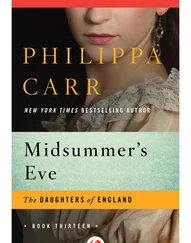Philippa Carr - Zipporah's Daughter
Здесь есть возможность читать онлайн «Philippa Carr - Zipporah's Daughter» весь текст электронной книги совершенно бесплатно (целиком полную версию без сокращений). В некоторых случаях можно слушать аудио, скачать через торрент в формате fb2 и присутствует краткое содержание. Жанр: Исторические любовные романы, на английском языке. Описание произведения, (предисловие) а так же отзывы посетителей доступны на портале библиотеки ЛибКат.
- Название:Zipporah's Daughter
- Автор:
- Жанр:
- Год:неизвестен
- ISBN:нет данных
- Рейтинг книги:4 / 5. Голосов: 1
-
Избранное:Добавить в избранное
- Отзывы:
-
Ваша оценка:
- 80
- 1
- 2
- 3
- 4
- 5
Zipporah's Daughter: краткое содержание, описание и аннотация
Предлагаем к чтению аннотацию, описание, краткое содержание или предисловие (зависит от того, что написал сам автор книги «Zipporah's Daughter»). Если вы не нашли необходимую информацию о книге — напишите в комментариях, мы постараемся отыскать её.
Zipporah's Daughter — читать онлайн бесплатно полную книгу (весь текст) целиком
Ниже представлен текст книги, разбитый по страницам. Система сохранения места последней прочитанной страницы, позволяет с удобством читать онлайн бесплатно книгу «Zipporah's Daughter», без необходимости каждый раз заново искать на чём Вы остановились. Поставьте закладку, и сможете в любой момент перейти на страницу, на которой закончили чтение.
Интервал:
Закладка:
‘Yes,’ agreed my mother, looking back I was sure to those long-ago days when my father had come into her life and shown her that she was not the sort of person she had hitherto believed herself to be. Just as Charles de Tourville had for Sophie.
So Sophie was to be married. The wedding would not take place in May as the whole Court and my parents’ circle of friends would be taken up with that other wedding; but preparations would go on for some time, for besides the making of the trousseau there were marriage settlements, which needed a great deal of negotiations where such families as the Aubignés and Tourvilles were concerned.
Sophie was the most important member of the household now. She was given her own maid—Jeanne Fougère, a girl a few years older than herself who had been one of the serving girls and was delighted to become a lady’s maid. She took her duties seriously and because Sophie was so pleased to have her and she so happy to be there, an immediate bond sprang up between them.
It was pleasant to watch Sophie’s progress but Lisette was growing restless. She had been educated as we were and yet was never really allowed to cross the social barrier; she did not sit at table with us but ate her meals with Tante Berthe and Jacques, the major-domo, in a special small dining-room where, Lisette told me, formality was at its greatest. But being Lisette she found some amusement in the procedure and as both Tante Berthe and Jacques were prodigiously interested in food, what was served in their dining-room could be compared very favourably with that eaten in the great hall or the family salle à manger. Lisette was grateful to have the education of a daughter of a nobleman but at times I fancied I caught a glimmer of resentment in her eyes.
It was typical of her that, with Sophie so much in demand and being constantly whisked away from us, she should think of our doing something which would amuse us and show Sophie, when we had the opportunity of telling her, that we too could live excitingly.
One of the servant girls had told her about Madame Rougemont, the great clairvoyant, who could see into the future and could give the most glowing accounts of what was to come.
The serving-girl had herself been to Madame Rougemont. It had been the most exciting adventure. She had sat in a room and Madame Rougemont had read her palm and looked into the crystal ball.
‘I see a tall dark gentleman,’ she had told the girl. ‘You are going to meet him soon and he will fall in love with you.’
‘And,’ said Lisette, ‘no sooner did she step outside Madame Rougemont’s salon than there he was. She said it was wonderful and she is going to meet him again. But wasn’t that strange? She had said a tall dark gentleman … and there he was.’
The more Lisette thought about it, the more determined did she become that we ourselves must pay a visit to Madame Rougemont. Our previous foray into the streets had not been very successful. In fact we had had a real scare; I reminded Lisette of this and she said: ‘Well, you know why. We did not have the right clothes. We must get some.’
I suppose we could have borrowed some from the servants with whom Lisette was on such good terms, but she had heard that second-hand clothes were sold in the Place de Grève on Mondays and decided that it would add spice to the adventure if we purchased them ourselves.
How we laughed! It was necessary to slip out of the house in the morning, which was not easy for we had to elude our governess and tutors. We chose a time when we had no lessons and went into the streets in our morning gowns which were the plainest we had.
What fun it was to walk through Paris! I would never lose the exhilaration I felt in those streets. Walking was different from riding; one saw more; one became more part of the scene.
There were people everywhere and no one took much notice of us except the occasional man who threw us a speculative glance.
Lisette, who had more freedom than I, was more familiar with the streets. She was allowed occasionally to go on some errand for Tante Berthe in the company of one of the servants. She revelled in her knowledge. She showed me the shops as we passed.
‘There,’ she said, ‘is the grocer-druggist. You can buy lots of things there … brandy, paint, sugar, lemonade, and confiture of all kinds with arsenic and aqua fortis. So if you want to poison someone you will know where to come.’
‘Do people really …’
‘Of course they do. Have you never heard of Marchioness de Brinvilliers who, a hundred years ago, poisoned people who were in her way? She used to try her poisons out on the hospital patients and went visiting the sick and taking little goodies for them. Then she would come and see what effect they had had and whether it was safe to use them.’
‘How diabolical.’
‘People are like that sometimes,’ said Lisette blithely.
She pointed out the narrow winding streets through which we must not venture and even she had no desire to do so. She also identified an old marcheuse, a fearful little creature who scuttled past; her face was scarred with the ravages of some terrible disease.
‘Once,’ said Lisette, ‘she was a beautiful woman. But a life of sin made her diseased and now she is fit only to run errands for the lowest type of prostitute. A lesson to us all,’ she added piously. ‘It just shows what terrible things can happen to women.’
She was sad for a moment. Lisette’s moods did change rather rapidly; and then she brightened.
‘Here is the Place de Grève. No executions here today because it is a Monday … but second-hand clothes instead.’
I couldn’t help crying out with pleasure, for ahead of us was a noisy crowd of people—mostly women—parading before the onlookers in all sorts of garments. Some wore hats with feathers; others had pulled gowns over their own. They screamed and laughed and chattered; and the vendors at the stalls looked on crying out: ‘What a miracle!’ ‘The fit is perfect!’ ‘It becomes you, Madame. You are a lady in that garment.’
‘Come on,’ said Lisette, and we were part of the crowd.
Lisette found a brown gaberdine dress—sombre in hue but which somehow set off her beautiful blonde hair. I found a dark purple which was plain, the sort which might have been worn by a shopkeeper’s wife.
Gleefully we made our purchases and no one took any special notice of us as we scuttled away through the streets back to the hôtel. We went up to my room and there tried on the dresses and rolled about in mirth as we assured ourselves that in them no one would have the slightest notion where we came from.
We could scarcely wait to set out on the real adventure. Lisette knew exactly where to go. The serving-girl who had told her about the fortune-teller had walked past the place with her only the day before.
On the way we passed the Bastille and I shivered as I always did and wondered how many people were incarcerated there who were innocent of any crime.
I tried to interest Lisette in the subject. She would surely know something about lettres de cachet, but she was not interested in anything but the fortune which lay in store for her.
We found the house. It was in a narrow street of tall houses. We mounted the steps and found the heavy door was open. We stepped into a hall. There a concierge sat in a boxlike room with glass panes through which he could see who came in.
‘Up the stairs,’ he said.
We went up. It was different from what I had expected. There was a carpet on the stairs of a rich red and a certain air of brash luxury about the place.
A girl in a low-cut blue dress came out of a room at the top of the first flight of stairs. She studied us very closely and smiled.
Читать дальшеИнтервал:
Закладка:
Похожие книги на «Zipporah's Daughter»
Представляем Вашему вниманию похожие книги на «Zipporah's Daughter» списком для выбора. Мы отобрали схожую по названию и смыслу литературу в надежде предоставить читателям больше вариантов отыскать новые, интересные, ещё непрочитанные произведения.
Обсуждение, отзывы о книге «Zipporah's Daughter» и просто собственные мнения читателей. Оставьте ваши комментарии, напишите, что Вы думаете о произведении, его смысле или главных героях. Укажите что конкретно понравилось, а что нет, и почему Вы так считаете.












